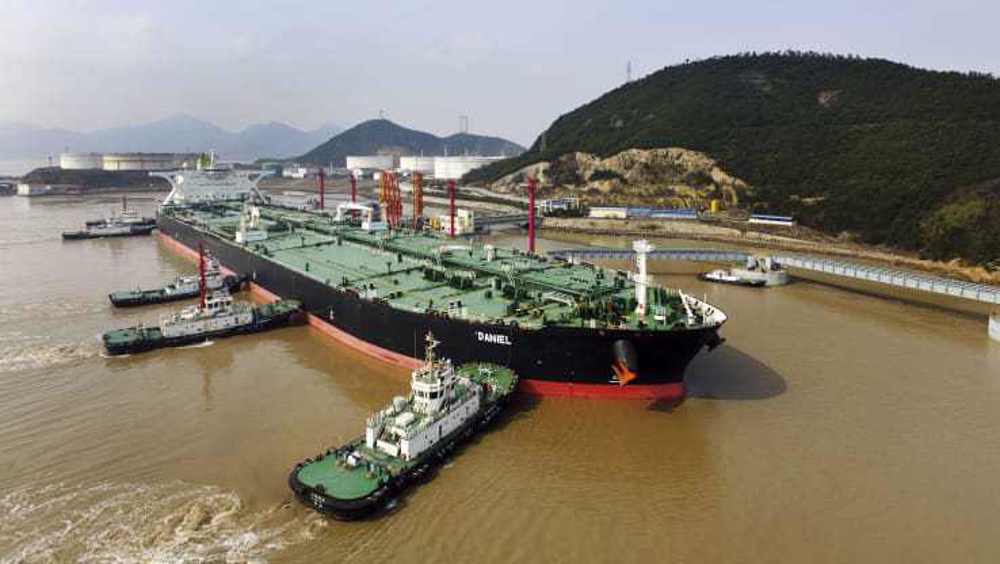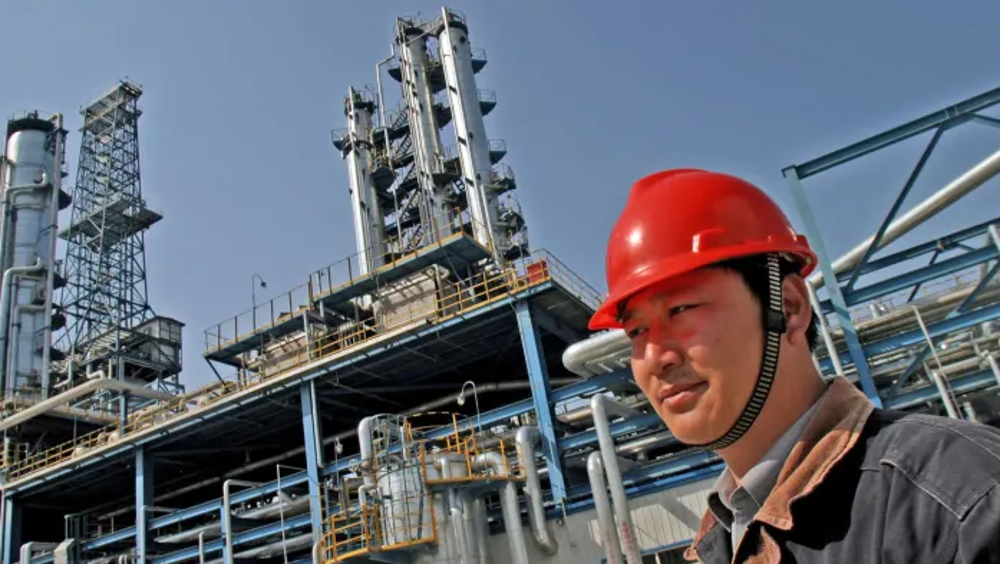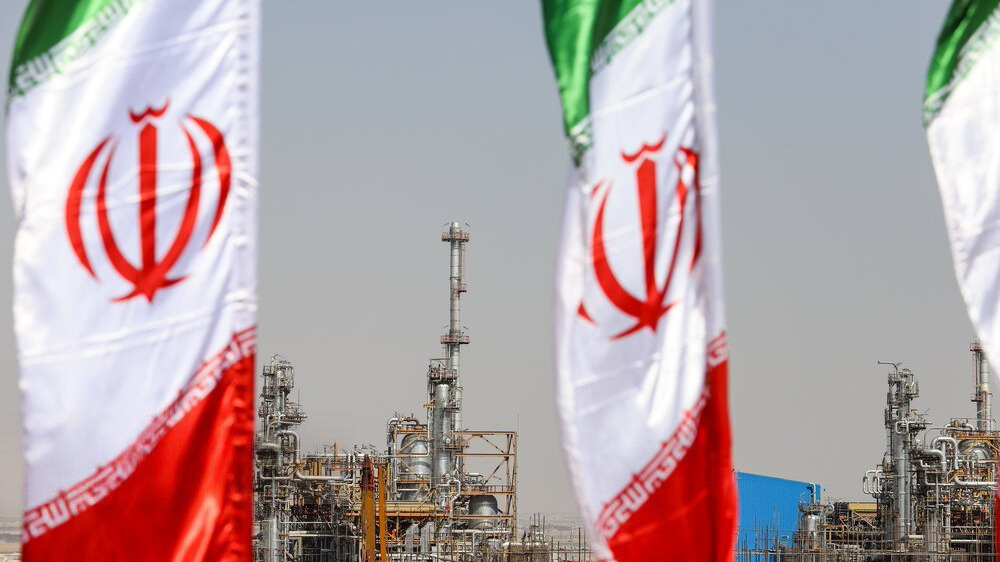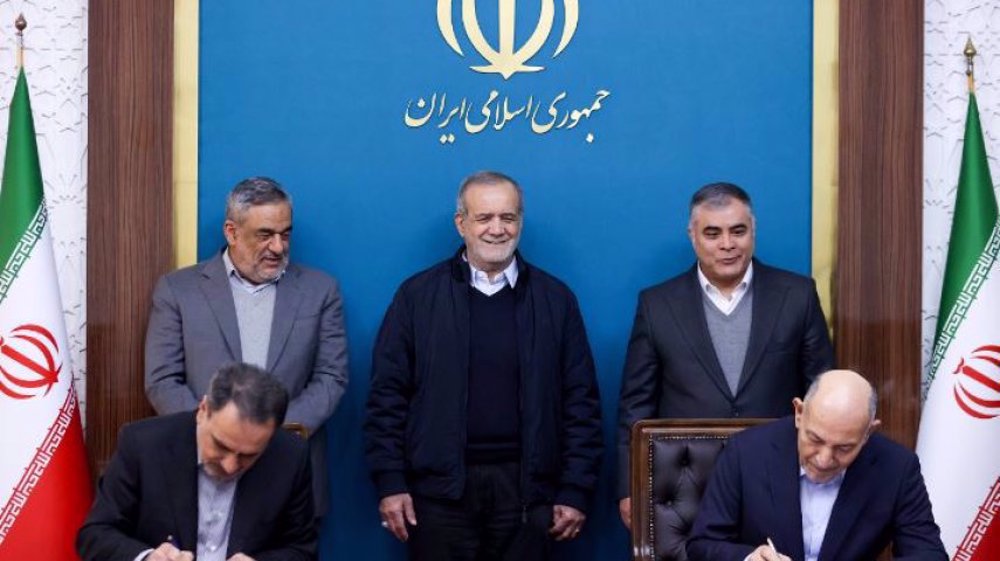Iran can now claim to have neutered oil sanctions
Oil sanctions have been one of the most important tools of pressure by the US to prevent the sale of Iranian oil and repatriation of its money under various pretexts, but they are losing their bite.
Under former president Donald Trump, Washington sought to reduce the sale of Iranian oil to zero, but the dream never came true, and Iran was able to sell hundreds of thousands of barrels of oil even amid the worst restrictions.
The attempt to neutralize the sanctions without tying the economy to the outcome of the Vienna negotiations has now got an added focus, with President Ibrahim Raeisi saying last month that Iran's oil sales had increased so much that Tehran did not have to worry any longer and that the proceeds were flowing back to the country.
Minister of Petroleum Javad Owji, then pressed on whether he could confirm Iran's oil exports having topped 1.5 million barrels per day, said, "I do not give numbers, but I can tell you with confidence that the sale of oil and gas condensate has grown very well compared to the previous government."
Moreover, the new government has received all the proceeds from the sales, he added. Central Bank Governor Ali Salehabadi also confirmed the increase in Iran's foreign exchange earnings.
"We sell 1.2 million barrels of oil and get paid for it. The sales commission is also much lower than before the sanctions," Saeed Jalili, a member of the Expediency Council, said.
The positive statements by Iranian officials coincided with the Western media reporting a sharp increase in Iranian oil sales under sanctions.
On Thursday, Reuters reported that Iranian oil exports had risen to more than 1 million barrels per day for the first time in almost three years.
The news agency cited consulting firm Petro-Logistics as saying that Iran's crude exports surged in December to more than 1 million bpd, the highest level in almost three years.
TankerTrackers was quick to dispute the figures. "You can't track what you can't see; and we tracked 1Mbpd back in Dec 2019 and even had 1.65Mbpd in March 2021."
The increase in Iranian exports comes as tight global supply has helped to push oil prices to a seven-year high of $94 a barrel.
Market watchers say $90 per barrel of Brent may be only the beginning amid questions about OPEC's spare capacity.
Last month, JP Morgan warned that Brent could rise to $125 per barrel as OPEC's spare production capacity falls to four percent of total capacity by the fourth quarter of 2022.
Amid the gloom, Iran offers a window of light. The country has repeatedly stated in good faith its readiness to increase oil production and stabilize the market.
Owji said recently that Iran would return to its pre-sanctions crude production levels as soon as the US sanctions were removed.
Petroleum ministry officials say a removal of the sanctions could bring back 3.8 million barrels per day of Iranian oil to the market over time. They are confident of the country's ability to increase production quickly. One senior official said recently that most output could be restored within a month.
But if the talks fail, what is certain is that the sanctions card used by the US against Iran's oil sales is no longer effective and the "maximum pressure" gambit pursued by Washington against the Islamic Republic has failed.
Last month, US State Department spokesman Ned Price acknowledged that the “maximum pressure” campaign against Iran, initiated by the Trump administration and maintained by the Biden administration, has been an “abject failure”.
Price's remarks underlining the mistakes of the Trump administration, however, belie the hostile actions of the Biden administration which seems intent on continuing the former path and maintaining sanctions as leverage to pressure Iran.
Tehran-based leading daily Kayhan on Monday cautioned Iran's negotiators in Vienna not to accept the removal of sanctions on oil sales as a concession by the United States, "because without the removal of the sanctions, we have managed so well to disable this instrument of pressure and not only sell our oil in large quantities, but also fully receive its money," the paper said.
"What has led the American officials to admit the failure of their policy of maximum pressure has been the resistance of the Iranian government and people and the implementation of the policy to neutralize sanctions under the guidance of the Eminent Leader" Ayatollah Seyyed Ali Khamenei, it added.
Last week, Ayatollah Khamenei reiterated his oft-repeated line that officials should not tie the country's economy to the results of the Vienna negotiations.
“I always repeat that you should not condition the country's economy and economic activities. Do not pause at something that is not in our hands,” the Leader said in his remarks directed at state officials.
Russia slams ‘unacceptable’ US pressure on Cuba as Trump seeks oil cutoff
Epstein advised ex-Israeli PM Ehud Barak to cooperate with US AI firm Palantir
Iran, US to hold nuclear talks in Istanbul: Report
Israeli strikes kill at least one, injure several people in south Lebanon
VIDEO | Imam Khomeini at Iran’s Neauphle-le-Château: Revolutionary influence in France
VIDEO | Press TV's news headlines
Israel holds 766 Palestinian bodies, nearly half since October 2023: Report
VIDEO | A new lease of life











 This makes it easy to access the Press TV website
This makes it easy to access the Press TV website